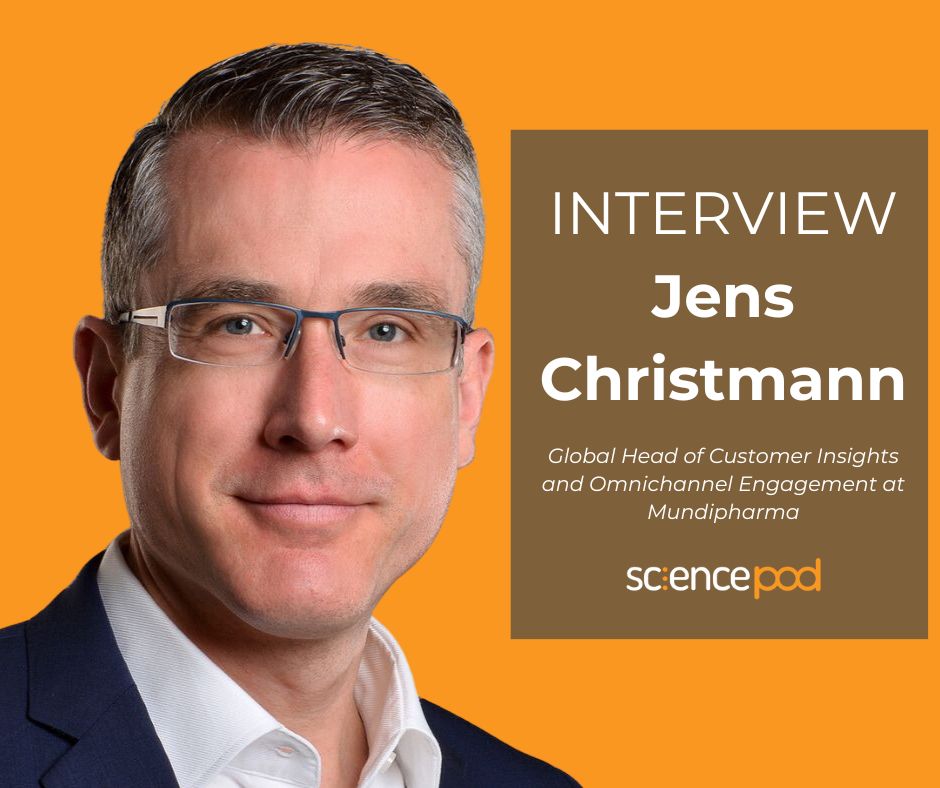Interview with Jens Christmann, Global Head of Customer Insights and Omnichannel Engagement at Mundipharma
“One should never start with the technology – always start with what is the pain point for the customer,” says Jens Christmann, Global Head of Customer Insights and Omnichannel Engagement at Mundipharma.
SciencePOD spoke with Jens Christmann ahead of his presentation “Mundipharma Case Study: Transforming a mid-sized company into an Omnichannel powerhouse” at NEXT Pharma Summit 2024. The event, which runs from 14-15 May 2024 in Dubrovnik, Croatia, provides a forum and networking opportunity for marketing, commercial and medical affairs leaders.
'Rejuvenating the whole engagement model and making it even more customer centric is the key feature of omnichannel engagement. Ultimately, I want people to have the feeling that they can do a better job because of my team.'
Jens Christmann Tweet
What is your role as Global Head of Customer Insights at Mundipharma?
Our mission is to grow our engagement with healthcare professionals (HCPs) and improve satisfaction by understanding their needs and becoming more customer centric so they can better support their patients. In my opinion, that is the key feature of omnichannel engagement: rejuvenating the whole engagement model and making it even more stakeholder centric.
From your perspective, what were the biggest lessons from 2023?
I would say that 2023 was the year of AI. We need to learn about and test it, while also not running after every trend and opportunity. That requires time and financial resources so you need to strike a balance. You can’t just sit and wait to see what works because then the train has left the station. So, especially in midsize companies, you really need to be selective.
Do you think midsize companies need to evaluate these trends more carefully?
Even big companies need to be selective at some point. Resources are the limiting factor for midsize companies, though there’s more complexity at the bigger organisations which makes embedding something much more difficult.
One should never start with the technology; rather, start with what’s required for the customer to best support their patients. More technology may not always be the solution – increasingly it’s the ability of the organisation to leverage existing tools and to execute with excellence.

What is your proudest achievement for omnichannel engagement so far?
We managed to increase key metrics that show the value of our team quite significantly, for example, the customer experience scores we receive from HCPs as well as other key performance indicators. I am proud of how my team enabled our organisation to achieve this by managing competing priorities and closely collaborating with other functions and our experts in the markets. I know that’s a big challenge for all of us working in the omnichannel environment.
Are there new technologies you’re adding to your repertoire to help in your digital engagement going forward?
Not as many as we did during and right after COVID, but I think it’s a general trend. I’m always looking at what is the weakest link in the chain. A model I’ll be presenting at NEXT Pharma has five key platforms we identified, one of which is technology. In most countries, and for most therapy areas, technology is no longer our weakest link. Now we need to make sure that, at scale, we execute our daily operations with excellence. I think that’s the biggest challenge for all companies.
Are there strategies or methods that can be used to better match medical affairs and marketing?
The collaboration across functions and between global and local is vital, and constantly needs nurturing. I see it as crucially important, especially as new people join, to make sure you align on your vision and how to get there.
You need centralisation to some degree. I don’t think it makes sense to replicate everything in every country or function – or, even worse, to have different omnichannel solutions and approaches. You need some standardisation while catering to local needs. The key challenge for people in omnichannel roles is to be that orchestrator. Ultimately, I want people to have the feeling that they can do a better job because of my team.
What is the biggest hurdle to overcome in 2024 for more effective customer engagement?
The trend towards individualisation continues. As customers, we all expect to choose when, where and how to get a service. Imagine how complex that is for an organisation to deliver if you can’t standardise as much as we used to do.
Individual customer calls are also becoming more complex because you’re starting to discuss patient journeys, funding and administrative requirements that are different in every interaction. Doctors need to know more than just the key features of a new treatment because chances are they know that already. As a key account manager, sales rep or medical science liaison, you need to be much more versatile.

